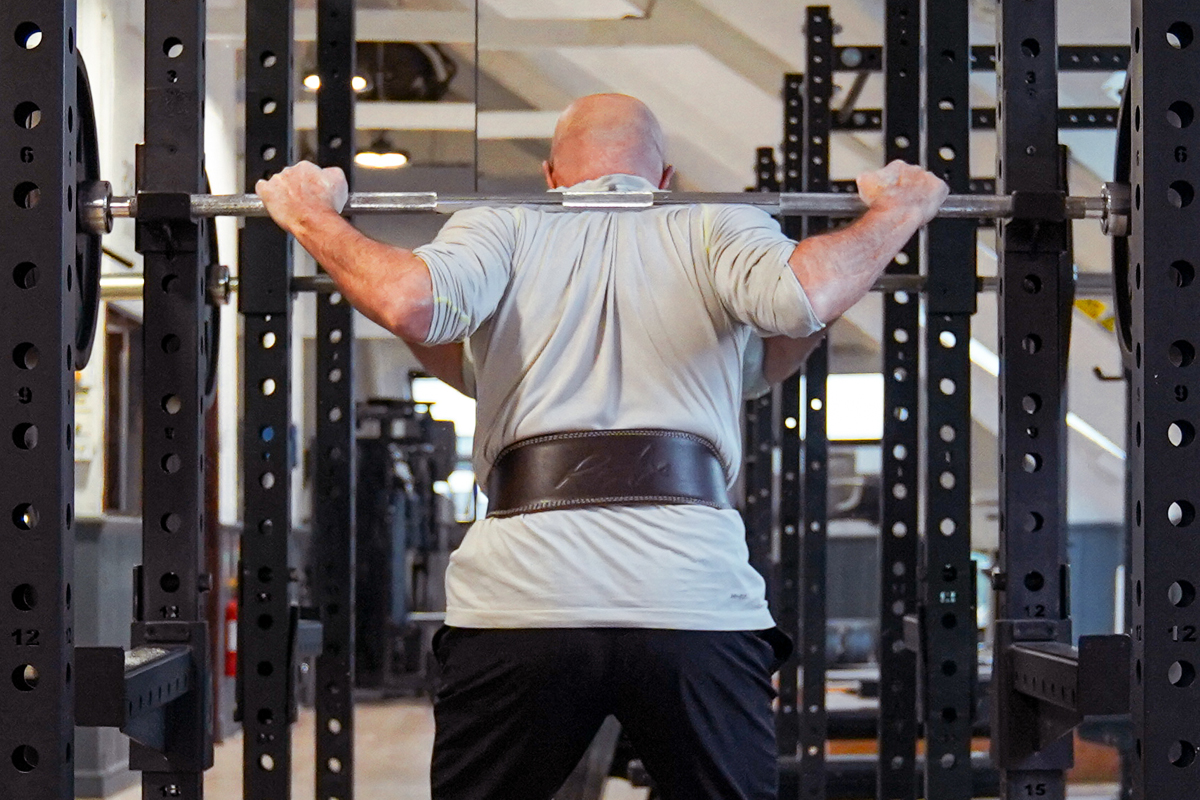
Abdominal Contraction
The belt provides a way to increase the ability to contract the musculature of your trunk during a heavy lift. It works by giving the muscles around your spine something to push against, so in turn they can produce a harder isometric contraction with the belt, than they can without it. It is very hard to properly engage and produce force against little, or no resistance. Therefore, wearing a belt provides this resistance to your trunk muscles, and the result is a harder contraction.
Improved Stability
A correctly sized belt helps to protect your spine, through something called Intra-Abdominal Pressure (IAP). IAP is effectively your ability to create pressure inside the abdominal cavity – an increase in IAP helps to better support your spine, and reduces spinal compression force. It’s understood that a correctly sized belt can help to increase IAP up to 15% for the deadlift, and 40% in the squat, leading to a more stabilised spine, which is especially important in heavy lifts
Faster Barbell Speed
Lifting with an increased IAP has a knock-on effect to your barbell speed too, which is most significant when working towards those one-rep maximums. Research has shown that the use of a belt may improve an athlete’s explosive power, by increasing the speed of the movement without compromising on the range of movement or technique of the lift.
In Summary
There’s only a couple of instances where we probably wouldn’t recommend a weightlifting belt – if you have high blood pressure, or any health issues which could be triggered from an increase in IAP (a hernia, for example).
For the majority of people a weightlifting belt will help you to stabilise your spine for lifting heavy weights, which will allow you to move more weight, and build more muscle.
Please see our Essential gear for strength training post to see our belt recommendation, along with some other training accessories which could help your training.

